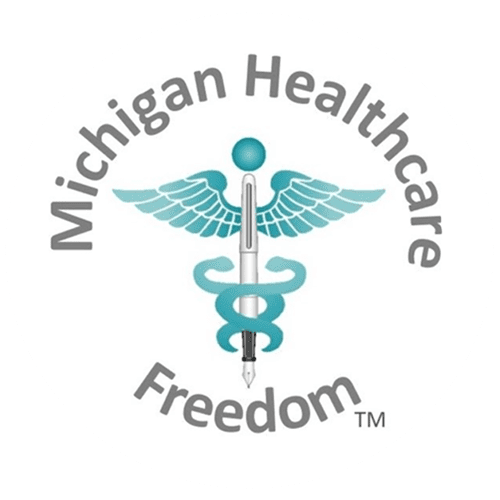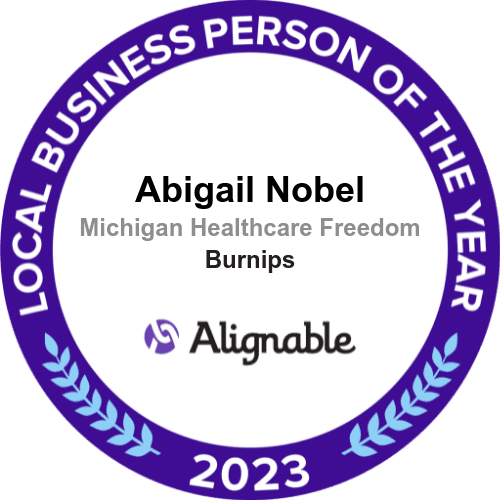- At roundtable, Nessel blasts federal SNAP turmoil as Michigan communities face rising need
- Whitmer signs Republican-led push for Michigan earmark reforms into law
- Trump administration urged by US House Dems to act on health insurance claim denials
- Former Congressman Andy Levin endorses El-Sayed’s U.S. Senate bid in joint op-ed
- Michigan regulators to host public hearing on DTE contracts for Saline Township data center
- US Senate agrees with overwhelming House vote to force release of Epstein files
- Trump administration unveils plan to try to dismantle Department of Education
- Report concludes that financial resources are the biggest driver of Michigan health outcomes
- Tlaib and Thanedar among Democrats pressing ICE for answers on detainment of pregnant women
- Shortage of rural doctors won’t end anytime soon, report says

Pharmacists face a "damned if you do, damned if you don't" dilemma when filling prescriptions for some intensely regulated medications, such as opioids. Note that this dilemma extends beyond opioids to many other drugs suspected of abuse:
Patients Are Paying the Price for a Broken Prescription System
By Heather Rhyne - November 17, 2025Across America, the simple act of filling a prescription is becoming harder than it should be. Pharmacies are closing their doors. Medication shortages are growing more common. Insurance red tape, labor shortages, and mail-order delays are compounding the problem. And rural communities, where providers are already few and far between, are feeling the pain most.
As a pharmacist who has spent years serving patients, I’ve seen the impact of these trends up close. As a member of the North Carolina House of Representatives, I serve in part because I believe these problems can, and must, be solved. Any solution starts with recognizing that our medication delivery system is under strain from all directions.
One example of a serious breakdown lies in how our legal and regulatory system handles opioid medications. Across the healthcare landscape, providers are being pulled in opposite directions: expected to act swiftly and compassionately for patients in pain, while also navigating a patchwork of shifting rules, vague standards, and retroactive scrutiny. The result? Uncertainty and paralysis where there should be clarity and care.
Nowhere is this tension clearer than in recent lawsuits against major national pharmacy chains. Federal prosecutors allege violations of the Controlled Substances Act and the False Claims Act for filling too many opioid prescriptions, filling them too early, or failing to question their legitimacy. On the surface, this might sound like a welcome step toward cracking down on opioid abuse and holding bad actors accountable. But in reality, these lawsuits are putting every pharmacist, from the largest chain to the smallest corner drugstore, in an impossible position.
Pharmacists are now being asked to second-guess prescriptions written by licensed physicians, while the very agencies responsible for regulating controlled substances refuse to provide clear rules on what constitutes a “legitimate” prescription. In fact, the Drug Enforcement Administration (DEA) has explicitly stated it lacks the authority to issue “guidelines that constitute advice” on how opioids should be prescribed, or dispensed. Pharmacists and prescribers are left to navigate a legal gray zone, where any decision can be scrutinized after the fact, with devastating consequences.
If a pharmacist fills a prescription for a cancer patient or someone recovering from surgery, they may be accused of enabling abuse. If they refuse, they could face accusations of interfering with medical care or even practicing medicine without a license. Doctors, too, are facing increasing pressure to cut back, often at the expense of patients with real and documented needs. In rural communities, where 33% of the farming population suffers work related injuries and cancer death rates are higher, the need for compassionate pain management is real.
Pharmacists have spent years asking federal regulators for help, for concrete, science-based guidance that balances patient safety with legal clarity. Instead, they’ve received hindsight litigation, conflicting demands, and ambiguous standards no one can actually follow. That must change.
Congress must conduct robust oversight of the DEA’s current refusal to issue national prescribing and dispensing guidelines for opioids. If the agency lacks authority, lawmakers must press for answers and, if needed, amend the law to empower the agency to give pharmacists a standardized framework for determining when a prescription may be filled in good faith.
At the same time, lawmakers should consider legislation establishing federal maximum prescription quantities or treatment durations for certain high-risk controlled substances. They must also enact safe harbor protections for pharmacists who take all appropriate precautions against dispensing unlawful prescriptions such as by confirming prescriber credentials and utilizing on Prescription Drug Monitoring Program (PDMP) data. Doing so would create a clear and enforceable baseline that pharmacists and physicians alike can rely on.
States have a role to play too. Similar safe harbor protections should be enacted at the state level to shield pharmacists from unjust discipline or liability. Pharmacists should not face civil or criminal penalties for filling valid prescriptions supported by clear documentation, and we should ensure rural providers are not pushed out of practice by fear or financial instability.
What we need now is leadership grounded in real-world experience. Those of us who understand what’s happening at the pharmacy counter, not just in courtrooms or agency offices, have a responsibility to speak up. Let’s fix this broken system, before more people are left to suffer in pain, confusion, and silence.
Heather Rhyne is an independent community pharmacist and member of the North Carolina House of Representatives who serves on the Committee on Health
Get MHF Insights
News and tips for your healthcare freedom.
We never spam you. One-step unsubscribe.

















